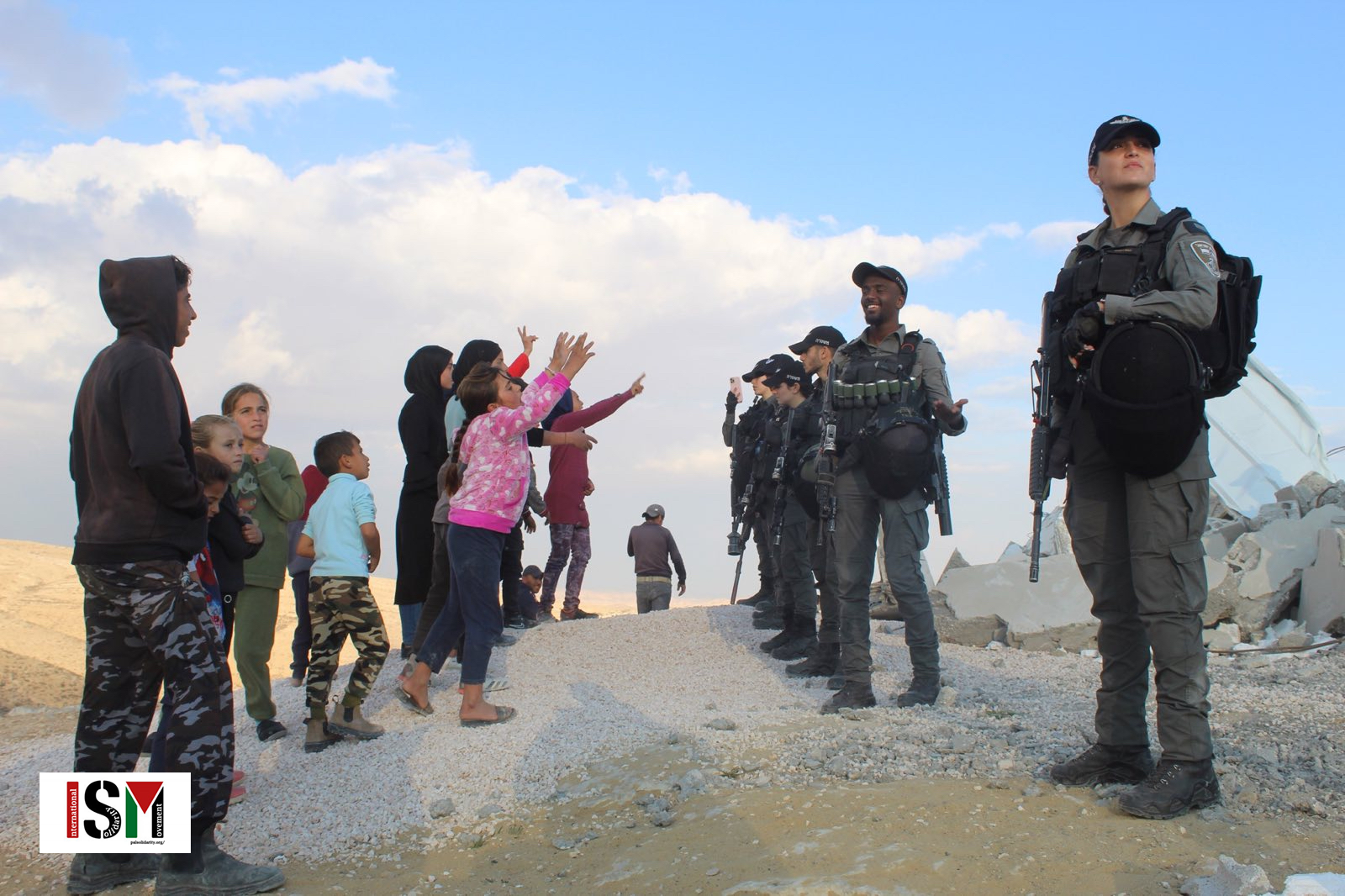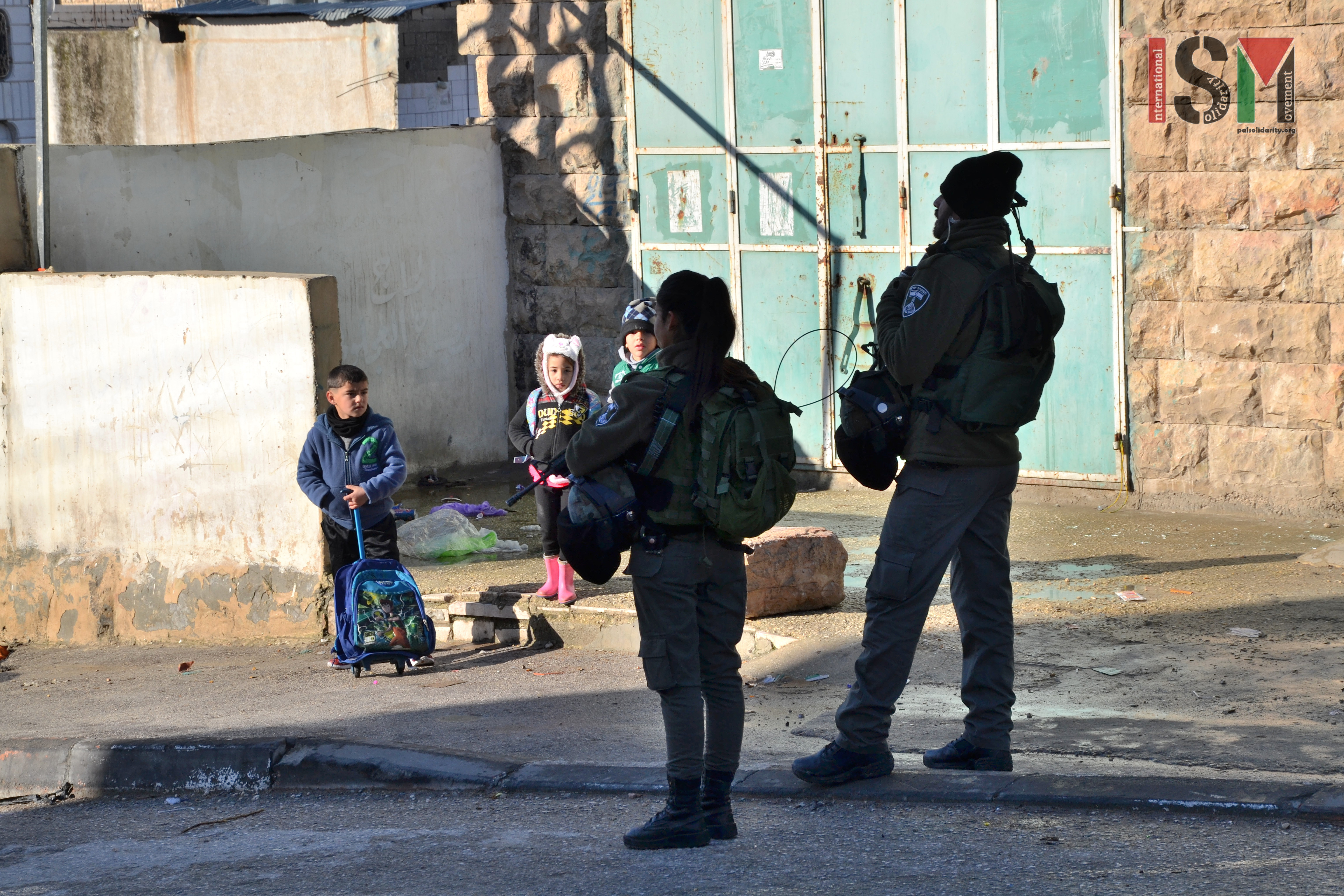Tag: school
-
IOF destroys Isfey al Fauqa school for second time in one month
On 6th December Israeli occupation forces (IOF) confiscated two tents, which were being used as a school in Isfey al Fauqa, a village situated within the region of Masafer Yatta in the South Hebron Hills. Israeli forces – with tear gas canisters at the ready – also destroyed a toilet which had been donated to…
-
Collective punishment on the way to school – the Israeli forces’ ‘job’
1st February 2017 | International Solidarity Movement, al-Khalil team | Hebron, occupied Palestine On Wednesday, 1st February 2017, Israeli forces intimidated school-children on their way to school. In the process, they closed one of the main checkpoints delaying teachers and school-children as they were on their way to school. As groups of children were passing the checkpoint…
-
After a good day comes a bad day
8th December 2016 | International Solidarity Movement, al-Khalil team | Hebron, occupied Palestine On 7th December 2016, Israeli forces at Shuhada checkpoint in occupied al-Khalil (Hebron) detained a group of teachers from nearby Qurtuba school, and then in collective punishment closed the checkpoint to everyone. Just after the teachers were finally allowed to reach their…



